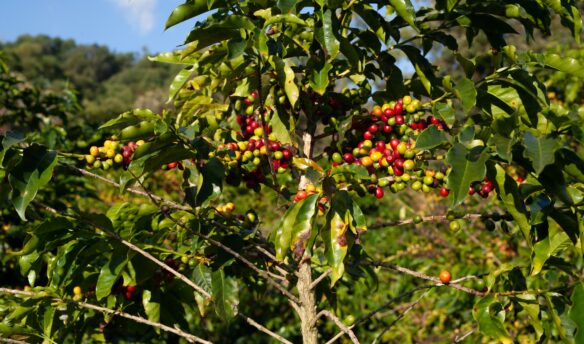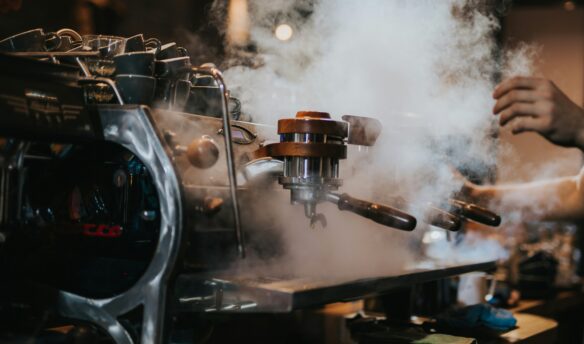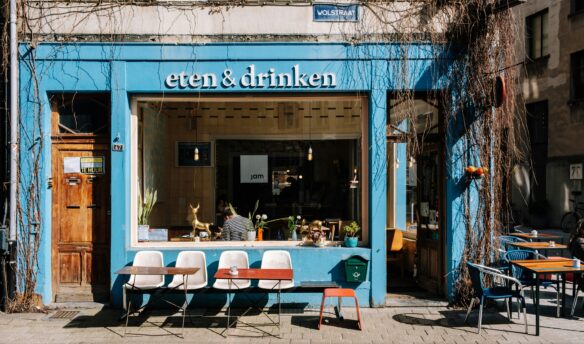Could coffee power your car? Plus, producers in Brazil default on their coffee contracts, and drinking coffee while pregnant could lead to shorter children.
‘Brazil Coffee Defaults Spike For Second Year In A Row’ – via Reuters
Coffee producers in Brazil default on contracts for a second year, failing to deliver on previously agreed sales.
This year’s harvest is smaller than expected while prices remain high, leading many to default on long-term contracts to sell their coffee on the more immediate spot market and earn a higher price.
This also happened in the aftermath of the unusual frost that hit Brazil in 2021, sparking similar fears of farmers looking for better deals than the contracts they had signed previously.
Reuters reports that several big exporters like Sucafina and Olam, as well as Brazil’s main grower’s co-op Cooxupe, are entering legal proceedings to gain compensation. None would comment on the record.
Coffee prices are beginning to decrease due to better weather in recent months, resulting in improved predictions for Brazil’s next crop season. This has even led to speculation that there could be a global green coffee surplus next year.
‘Can Chicago’s Independent Coffee Shops Bounce Back? Cafes Cut Hours As They Struggle’ – via Block Club Chicago
While Chicago-specific, this article indicates how the United States’ independent coffee scene is faring in the face of inflation, shortages, and a reduced customer base.
Some coffee shops are cutting operating hours, others are closing locations, and some use the now-ubiquitous complaint of “staffing shortages.” However, this article does interview workers to get their take instead of just quoting business owners and customers.
About five years ago, Soren Spicknall created a map of cafes on Chicago’s South Side. Over time, the map became a way to monitor cafe openings, closings, and patterns such as changing closing times.
The pandemic has altered how customers interact with coffee shops, Spicknall thinks, with more remote work and fewer people comfortable sitting inside. As a result, more cafes are closing earlier or shutting down altogether.
Then there are staffing issues. Kusanya Cafe reports trying to hire employees for nearly a month and receiving only two applicants. The article goes on to state that Philp Sipka, the cafe’s executive director, “doesn’t think increasing wages by a few dollars will draw more employees due to the overarching inequities in the United States.”
“I make less than my employees already, but I don’t feel like the solution is as simple as raising pay,” Sipka said. “I’ll be in the trenches here as long as I have people to work with me, but a lot of the issues we’re facing are really out of my control.”
Zachary Heren, a member of the bargaining team for the Colectivo Coffee union, says the pandemic has led to staff being overworked and exposed to Covid, but it also fostered solidarity. “There seems to be a greater understanding that everyone is basically having the same issues,” Heren said, “and that organizing in your workplace is one of the most direct and effective things workers have found to be useful.”
‘Researchers’ Feed’ Leftover Coffee Grounds to Microalgae to Produce Low Emission Biodiesel’ – via Science Daily
Scientists in the United Kingdom have produced “high-quality” biodiesel with “minimal emissions” by feeding leftover coffee grounds to microalgae.
The researchers from Aston University in Birmingham, England, found that used coffee grounds provided both a structure on which the microalgae can grow and suitable nutrients to enable extraction of enhanced biodiesel.
Currently, biofuels—plant-based alternatives to fossil fuels—are made using various components, including corn, sugar cane, used cooking oils, wood chips, and waste materials. Many of these must be grown on arable land, which puts them in competition with food crops, preventing them from being widely adopted. In the US, 36% of corn production and 40% of soybean production went to produce biofuels in 2021.
Meanwhile, we produce 15 million tons of coffee grounds each year. When deposited in a landfill, coffee grounds release methane, a more potent greenhouse gas than carbon dioxide. While some grounds are composted and some turned into other products, there is still a huge opportunity to use what’s left for something positive.
The research, published in the November issue of Renewable and Sustainable Energy Reviews, represents “a breakthrough in the microalgal cultivation system,” according to lead scientist Dr. Vesna Najdanovic.
Dr. Najdanovic hopes this coffee-based biodiesel will lessen competition with food crops and reduce deforestation by minimizing the need for biofuels made from palm oil.
More News
‘WSH Group Acquires London’s Notes Coffee Roasters & Bar’ – via World Coffee Portal
‘Sucafina Launches In-House Sustainability Program Called “Impact”‘ – via Daily Coffee News
‘Saudi Coffee Company Seeks 700% Coffee Production Growth by 2028’ – via World Coffee Portal
’23rd Brazil Cup of Excellence Results in Five 90+ Coffees’ – via Daily Coffee News
‘Death Cab For Cutie Teams Up With Camber Coffee For Special Release’ – via Sprudge
‘Kenya: Union Urges Farmers to Increase Coffee Trees as Bright Future Beckons’ – via All Africa
‘Fairtrade Unveils Living Income Reference Price for Ugandan Coffee’ – via Daily Coffee News
The Week in Coffee Unionizing
- The National Labor Relations Board is seeking an order from a judge to force Starbucks to reopen an Ithaca, New York location it closed earlier this year among allegations of union-busting. The board said that Starbucks has been “failing and refusing to bargain collectively and in good faith” and requested that the five fired employees at the location be reinstated or reimbursed.
- A federal judge ordered Starbucks Workers United to hand over their correspondence with journalists to Starbucks, which the company says will help them uncover “misinformation.” The union accused Starbucks of having “contempt for all the norms of democracy.”
- The unionization drive at Starbucks is slowing, with twelve stores petitioning for representation in September and eight in August, down from a peak of 71 in March. The Wall Street Journal puts this down to the company offering more pay and expanded benefits to non-unionized employees. Meanwhile, Starbucks announced record-breaking sales over the last quarter, generating $6.1 billion in revenue and $1.1 billion in profits.
- Away from Starbucks, two employees of Little Dog by the Met in Brunswick, Maine, said they were fired for trying to organize their workplace. Employees filed a complaint with the NLRB alleging unfair labor practices, which the company denies.
Is Coffee Good For You?
According to new research, drinking coffee while pregnant could lead to shorter children.
The study found that even limited exposure to caffeine in the womb could have an effect, with pregnant people who reported low caffeine intake during pregnancy having slightly shorter children than those who drank none.
Published in the Journal of the American Medical Association (JAMA) Network, the research grew out of the long-term National Institute of Child Health and Human Development (NICHD) Fetal Growth Studies. These findings come from a follow-up to a study from last year that found moderate caffeine intake during pregnancy resulted in smaller birth size and weight.
Although findings indicated that coffee intake affected child height, the impact is minimal. “Importantly, the height differences we observed are small — less than an inch — and further research is needed to determine if these differences have any effects on child health,” said study author Dr. Katherine Grantz. “Pregnant people should discuss caffeine consumption with their healthcare providers.”
Meanwhile, research has shown that coffee could protect against infection by coronavirus.
Chemists at Jacobs University Bremen showed that chlorogenic acid “inhibits the interaction by a factor of 50 between the SARS CoV-2 spike protein of the coronavirus and the ACE-2 receptor, the docking site for the virus on the human cell.” However, these findings were observed in laboratory settings, so any conclusions are theoretical at this point.
“As chemists, we cannot answer the practical question of whether drinking coffee could really serve as a preventive measure to protect against infection,” said Professor Nikolai Kuhnert. “But we can say it is plausible.”
What To Read
‘Starbucks’ Aggressive Union-Busting Is a New Model for American Corporations’ by Steven Greenhouse
‘Where Coffee Is Grown but Rarely Consumed, a Shift’ by Beatrice Lamwaka
Coffee News Club is written by Fionn Pooler and the Fresh Cup editorial team.















